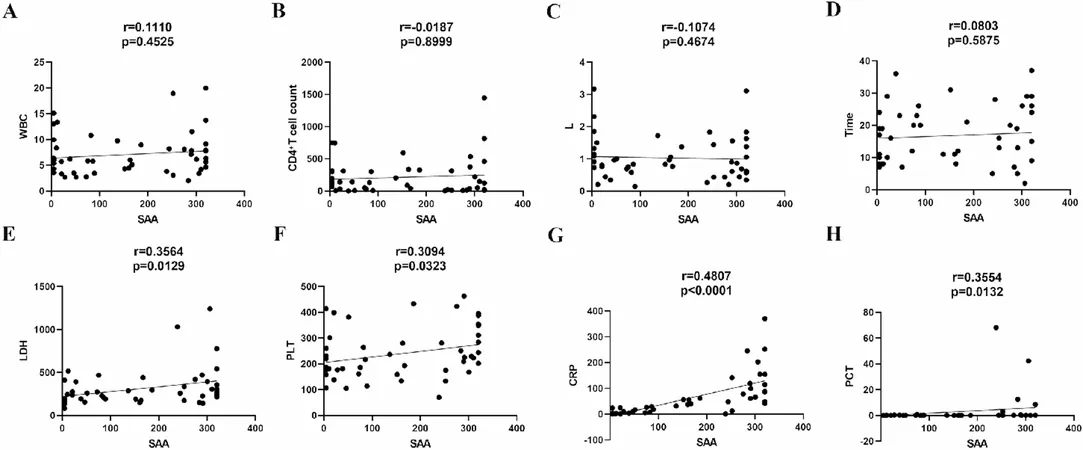
Groundbreaking Results in Breast Cancer Treatment: Patritumab Deruxtecan Shines in Latest Trial
2025-09-09
Author: Wei Ling
A Game-Changer for Metastatic Breast Cancer?
In a bold step forward for breast cancer treatment, patritumab deruxtecan (HER3-DXd), developed by Daiichi Sankyo and Merck, has hit a major milestone in the ICARUS-BREAST01 trial. This innovative drug has shown a striking overall response rate (ORR) in patients battling hormone receptor-positive, HER2-negative (HR+/HER2–) metastatic breast cancer (mBC)—the most prevalent subtype of the disease, accounting for nearly 72.7% of all cases.
The Challenge of Treatment
Treating HR+/HER2– mBC presents unique challenges, primarily due to the aggressive nature of these tumors. Patients in this category often need advanced therapies to combat their condition. This trial underscores the critical need for effective treatment options that can specifically target cancerous cells while minimizing side effects.
Unleashing the Power of Antibody-Drug Conjugates
Patritumab deruxtecan is a cutting-edge antibody-drug conjugate (ADC) that combines a monoclonal antibody with a potent cytotoxic agent, all linked by a cleavable peptide connector. Designed to enhance the therapeutic impact of cancer treatments, ADCs aim to deliver toxicity directly to tumor cells while sparing healthy tissue.
Trial Results That Inspire Hope
Within the ICARUS-BREAST01 trial, which ran from May 2021 to June 2023, researchers reported an impressive ORR of 53.5% from a cohort of 99 patients receiving HER3-DXd at an intravenous dose of 5.6 mg/kg every three weeks. Notably, the trial recorded two complete responses and 51 partial responses, with 62.6% of patients experiencing a clinical benefit lasting six months or longer.
Key Insights and Survival Rates
Despite encountering disease progression or death after a median duration of 15.3 months, participants enjoyed a median progression-free survival (PFS) of 9.2 months. Further analysis revealed even more promising numbers—60% ORR in HER2-low patients and a median PFS reaching 12.8 months.
Managing Side Effects
While the trial brought good news, some participants did report side effects, including fatigue (83%), nausea (75%), diarrhea (53%), and alopecia (40%). However, the overall safety profile remains manageable.
Looking Ahead: Implications for Future Research
The findings of the ICARUS-BREAST01 study not only highlight patritumab deruxtecan as an effective treatment option but also pave the way for larger studies. The authors advocate for further exploration into biomarkers of treatment response, which could further unveil the mechanisms driving HER3-DXd's efficacy in combatting breast cancer.
As this promising treatment progresses, it could represent a vital new weapon in the ongoing battle against one of the world’s most stubborn cancers.



 Brasil (PT)
Brasil (PT)
 Canada (EN)
Canada (EN)
 Chile (ES)
Chile (ES)
 Česko (CS)
Česko (CS)
 대한민국 (KO)
대한민국 (KO)
 España (ES)
España (ES)
 France (FR)
France (FR)
 Hong Kong (EN)
Hong Kong (EN)
 Italia (IT)
Italia (IT)
 日本 (JA)
日本 (JA)
 Magyarország (HU)
Magyarország (HU)
 Norge (NO)
Norge (NO)
 Polska (PL)
Polska (PL)
 Schweiz (DE)
Schweiz (DE)
 Singapore (EN)
Singapore (EN)
 Sverige (SV)
Sverige (SV)
 Suomi (FI)
Suomi (FI)
 Türkiye (TR)
Türkiye (TR)
 الإمارات العربية المتحدة (AR)
الإمارات العربية المتحدة (AR)